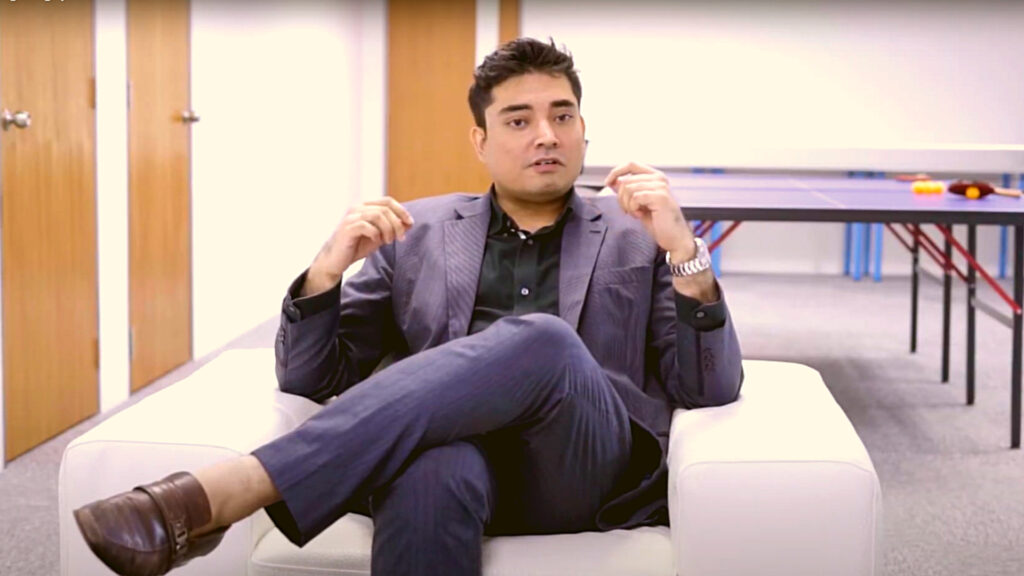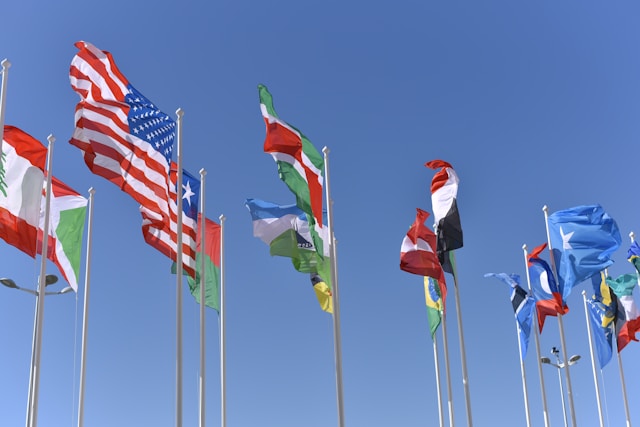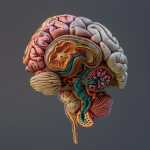Sancy Suraj, a Singaporean memory athlete, has set a new record by breaking two Singapore memory records in a single day. Suraj has set six records in total, including the Singapore record for reciting the most pi digits (1,505). On February 7th, 2021, at the Singapore Polo Club, Suraj broke the Singapore record for the fastest time to identify all national flags. He had to type the names of 197 countries, and within 30 minutes, he wrote down 1,119 digits of Euler’s number, another irrational number without an end to its decimal representation. Suraj’s remarkable achievement demonstrates the incredible potential of the human mind and its capacity for memory.

You hold the record for reciting the most pi digits in Singapore – what inspired you to pursue this particular memory feat?
As someone who has always been fascinated by the power of the human brain, I have long been interested in memory feats and the potential of the mind to achieve incredible things. The idea of memorizing a large number of pi digits was particularly intriguing to me, as pi is an irrational number with an endless decimal representation. I saw it as a challenge that would push my mental limits and test my abilities in a unique way.
To prepare for the pi digit recitation record, I spent months training my memory using various techniques, such as visualization and repetition. I also worked on developing my mental stamina and focus, as I knew that reciting over 1,500 digits would require immense concentration and endurance.
On the day of the record attempt, I was both nervous and excited, knowing that I had put in countless hours of preparation and that the outcome was uncertain. However, as I began to recite the digits, I found that my training had paid off – the numbers seemed to flow from my mind effortlessly, and I was able to recite them with accuracy and speed.
Breaking the record for reciting the most pi digits in Singapore was a truly exhilarating experience, and it gave me a sense of pride and accomplishment to know that I had pushed myself to achieve something that few others had. It also helped to validate the effectiveness of the memory techniques that I had been practicing, and it inspired me to continue pushing myself to achieve even more impressive memory feats in the future.
Breaking the record for identifying national flags must have required a lot of preparation and study. Can you tell us a bit about the process you went through to memorize all 197 flags?
Breaking the record for identifying all 197 national flags was definitely a challenging feat, and it required a lot of preparation and study on my part. To begin with, I had to familiarize myself with each flag and its associated country, which meant doing extensive research and memorization.
One of the strategies that I used was to group flags by region or continent, as this made it easier to remember them in context. For example, I might focus on memorizing all the flags of European countries first, before moving on to those in Asia or the Americas. This helped me to create mental connections between the flags and their geographical locations, making it easier to recall them when needed.
Another technique that I used was to create mnemonic devices or mental images for each flag, to help me remember its unique characteristics. For example, for the flag of Italy, I might visualize a large pizza with the colors of the flag on top, or for the flag of Jamaica, I might imagine a tropical beach with the flag waving in the breeze. These mental associations helped to anchor the flags in my memory and make them easier to recall.
In addition to these techniques, I also spent a lot of time practicing and testing myself, using flashcards or other memory aids to quiz myself on the flags. I would set goals for how many I wanted to learn each day, and gradually build up my knowledge over time.
Overall, breaking the record for identifying all national flags was a challenging but rewarding experience, and it required a combination of research, memorization techniques, and consistent practice to achieve. By applying these strategies and dedicating myself to the process, I was able to push my memory abilities to new heights and achieve an impressive result.
Writing down over 1,100 digits of the Euler’s Number is an incredible feat – how did you go about memorizing such a long sequence of numbers?
Memorizing over 1,100 digits of the Euler’s Number was definitely a daunting challenge, but one that I was excited to take on. To begin with, I had to break the number down into smaller chunks that were easier to remember. This meant grouping the digits into sets of 10 or 20, and then memorizing each set individually before moving on to the next.
To make the process of memorization easier, I also used a technique known as the “memory palace,” which involves associating each set of digits with a specific location in my mind. For example, I might visualize the digits 1234567890 as being located in a particular room of a house that I am familiar with, such as the living room. By creating a visual image of each set of digits and placing them in a specific location, I was able to recall them more easily when needed.
Another technique that I used was to create a story or narrative around the digits, to help me remember the order in which they appeared. For example, I might imagine a story in which a character travels to different locations and encounters different objects or events, with each set of digits representing a different part of the story. By linking the digits to a narrative or story, I was able to create a mental framework that made them easier to remember.
Lastly, consistent practice was key to memorizing such a long sequence of numbers. I spent hours each day practicing and testing myself, using flashcards or other memory aids to quiz myself on the digits. By setting daily goals and gradually increasing the amount I could remember over time, I was able to build up my memory abilities and achieve an impressive result.
Overall, memorizing over 1,100 digits of the Euler’s Number required a combination of memorization techniques, visualization, and consistent practice. By breaking the number down into smaller chunks, creating mental associations with specific locations or stories, and dedicating myself to the process of memorization, I was able to achieve a remarkable feat of memory.
“Memorizing over 1,100 digits of Euler’s Number was a challenge that demanded perseverance, visualization, and consistent practice. By breaking it down into manageable chunks, creating vivid associations, and dedicating myself to the process, I unlocked the extraordinary power of the human memory.”
You’ve broken multiple memory records in Singapore – how do you choose which feats to pursue, and what motivates you to continue setting new records?
Choosing which memory feats to pursue is a process that involves both personal interest and strategic planning. I am always on the lookout for new challenges and opportunities to push the limits of my memory abilities. I research various memory feats, study the current records and techniques used by other memory athletes around the world. I then evaluate my own strengths and weaknesses to determine which memory feats would be a good fit for me.
However, it’s not just about pursuing the feats that seem most achievable or impressive. I also choose feats that are meaningful and significant to me personally, or that allow me to showcase my unique abilities in a particular area. For example, breaking the record for identifying national flags was particularly meaningful to me as a Singaporean, and allowed me to showcase my patriotism and knowledge of the world.
In terms of motivation, setting new records is a constant drive for me. I am always seeking to push my limits and challenge myself in new ways. The feeling of accomplishing something that I once thought was impossible is incredibly satisfying and motivating. Additionally, I enjoy being able to inspire and motivate others to push their own limits and pursue their passions.
Furthermore, breaking memory records is also an opportunity to promote the benefits of memory training and the power of the human mind. I believe that anyone can improve their memory abilities with the right training and techniques, and by setting new records, I hope to inspire others to explore the potential of their own minds.
In conclusion, my motivation to continue setting new memory records comes from a combination of personal interest, strategic planning, the satisfaction of accomplishing something once thought impossible, the opportunity to inspire others, and the desire to promote the benefits of memory training.
Are there any other memory-related skills or abilities you’re working on developing or improving, aside from memorizing numbers and flags?
Yes, there are several other memory-related skills and abilities that I am currently working on developing and improving. One area that I am particularly interested in is memory palaces or the Method of Loci. This is a technique that involves associating information with specific locations in a familiar physical space, such as a house or a street. By mentally walking through the space and visualizing the information in each location, one can easily recall the information later.
Another area that I am working on is speed reading and retention. This involves not only reading quickly, but also retaining and recalling the information read. This skill is particularly useful in academic and professional settings where a large amount of information must be processed and remembered quickly.
I am also interested in developing my ability to memorize and recall complex instructions or procedures. This skill is particularly important in fields such as medicine and aviation where the ability to quickly and accurately recall complex procedures can be a matter of life and death.
Lastly, I am also interested in developing my ability to remember faces and names. This skill is particularly useful in social and professional settings where networking and building relationships is important.
Overall, memory is a vast and fascinating area of study, and there are many skills and abilities that one can work on developing and improving. By continuing to challenge myself and explore new areas of memory training, I hope to continue pushing the limits of my memory abilities and inspiring others to do the same.
“Memory is a boundless frontier, and I am constantly exploring new skills and abilities to expand my memory horizons. From memory palaces to speed reading, complex procedures to faces and names, I strive to push the limits of my memory and inspire others to unlock the full potential of their own memory prowess.”
Suraj’s achievements are undoubtedly remarkable, and many wonder how he managed to achieve such feats. In an interview, Suraj shared his experience of preparing for the record-breaking events. He revealed that he spent months studying and memorizing the national flags of every country, using memory techniques such as visualizations and acronyms. For memorizing the digits of Euler’s number, he relied on the Method of Loci, a technique that involves mentally placing objects in a specific location to recall them later.
Suraj’s passion for memory-related challenges and setting new records is what motivates him to continue his journey. He believes that everyone has the potential to develop their memory skills with practice and dedication. When asked about the other memory-related skills he’s working on, Suraj stated that he’s always looking for new challenges and is currently working on memorizing a deck of cards in under a minute.
What advice would you give to someone who is interested in developing their own memory skills, or who wants to attempt a memory-related record of their own?
If someone is interested in developing their memory skills or attempting a memory-related record of their own, my advice would be to start with the basics and then gradually work up to more advanced techniques. Here are some tips that may be helpful:
- Practice regularly: Just like with any skill, regular practice is essential for improving your memory. Set aside a few minutes each day to work on memorization exercises, and gradually increase the amount of time as your skills improve.
- Use memory techniques: There are many memory techniques that can help you remember information more effectively, such as the Method of Loci, acronyms, and visualizations. Experiment with different techniques to find the ones that work best for you.
- Focus on meaningful information: It’s easier to remember information that is meaningful or relevant to you, so try to find connections between the information you want to remember and your own experiences or interests.
- Break information into chunks: Instead of trying to memorize a long string of information all at once, break it up into smaller chunks and work on memorizing each chunk separately.
- Stay motivated: Setting goals and tracking your progress can help you stay motivated and focused on improving your memory skills. Celebrate your successes along the way, and don’t get discouraged if you experience setbacks or difficulties.
- Find a community: Joining a community of people who share your interest in memory techniques and records can be a great way to stay motivated and learn from others. Attend workshops or events related to memory, or connect with others online.
In summary, developing memory skills takes practice and patience. Start with the basics, experiment with different techniques, and stay motivated by setting goals and tracking your progress. With time and effort, you can improve your memory and even set new memory-related records.
“Unlock the power of your memory through practice, techniques, and motivation. Start with the basics, connect with a community, and strive to set new records in the fascinating realm of memory. Your mind is a limitless vault waiting to be unlocked, one memory at a time.”
Sancy Suraj’s achievements have inspired many people to explore their memory skills and reach their potential. His success demonstrates that with dedication, practice, and the right techniques, anyone can develop their memory skills and achieve remarkable feats. Suraj’s passion for memory-related challenges and his pursuit of new records continues to inspire people worldwide to explore the full potential of their minds.





























